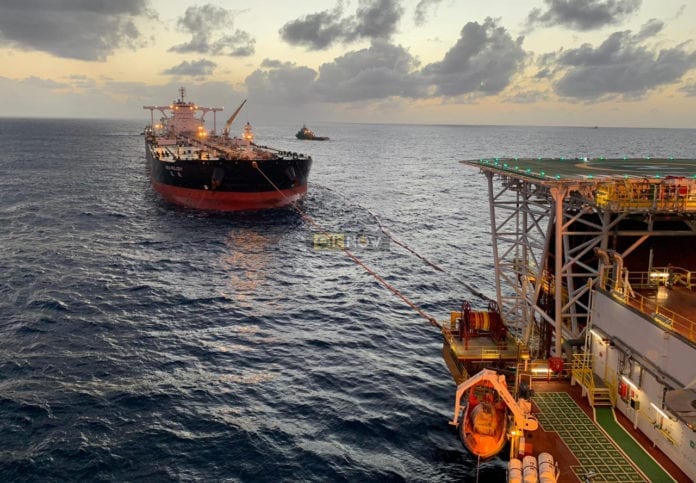As the coronavirus pandemic continues to crush oil demand globally, the oversupply of crude is placing a growing strain on storage capacity. In the US this resulted in the May contract for U.S. West Texas Intermediate (WTI) futures tumbling into negative territory for the first time ever on Monday which saw traders having to pay to get oil taken off their hands.
The May WTI contract, which expired on Tuesday had closed at a discount of $37.63 in the previous session for the first time in its history.
According to CNBC, wild swings in the May contract for WTI this week were thought to have been exaggerated by its imminent expiration, leaving many concerned the situation could repeat itself when the June contract expires next month.
The contract for June delivery of WTI traded at $10.85 on Wednesday morning, down over 6%. It had plummeted more than 40% in the previous session.
Meanwhile, international benchmark Brent crude stood at $17.01, nearly 12% lower.
What does this mean for Guyana production?
Oil produced in Guyana is traded against Brent which is priced on an island in the North Sea roughly 500 meters from the water, where tanker storage is accessible. In contrast, WTI is landlocked and 500 miles from water.
“This illustrates an important point,” analysts at Goldman Sachs said earlier this month. They argued waterborne crudes were likely to be “better positioned” than landlocked price grades — like crude oils in the U.S., Canada and Russia — because they had comparatively easy access to tanker storage.
A record amount of crude oil is being stored on ships around the world. There are now 160 million barrels of oil being stored on tankers, Reuters has reported. Previously, the largest amount of oil stored at sea was around 100 million barrels during the 2009 financial crisis. But this tanker storage capacity is not infinite. Also, one of the world’s biggest independent oil storage companies said this week that space for traders to store crude and refined fuels has all but run out as a result of the fast-expanding glut that’s been caused by Covid-19.
“The available capacity on the oil side is almost completely sold out for our terminals,” Gerard Paulides, the chief financial officer of Rotterdam-based Royal Vopak NV, said in an interview. “For Vopak, worldwide available capacity that is not in maintenance is almost all gone and from what I hear elsewhere in the world we’re not the only ones.”
Director of Guyana’s Department of Energy. Dr. Mark Bynoe, says while no crude shipment from the country’s first offshore development has been affected to date, shipments could be affected as global storage runs out.
The South American country became an oil producer last December and currently has no capacity to store its crude onshore.
Dr. Bynoe said setting up land-based storage would not happen soon since that requires extensive planning and an investment running into the billions of Guyana dollars. “Any investment will have to look at the relative costs and benefits,” he pointed out.
When oil prices go low, don’t panic
Energy expert, author and consultant, Robert McNally has told OilNOW that extreme price volatility is a key feature of the oil industry and can have a major impact on the ability of the Guyana government to plan ahead effectively on how it invest oil revenues.
“When the price of oil collapses, don’t panic, don’t rip up the contracts, don’t assume you are being fleeced. Look at the supply and demand on the global market. Understand why oil prices are prone to volatility and realize that the dip may be temporary,” he said.
What is certain is that Guyana is still seen as a key location for offshore development with massive potential. ExxonMobil has found over 8 billion barrels of oil off the country’s coast since 2015 and other companies have since made their own discoveries.
Even in the era of an oil price collapse that has put the industry under strain, over 30 traders lined up this week to bid for the opportunity to market Guyana’s light sweet Liza crude.



